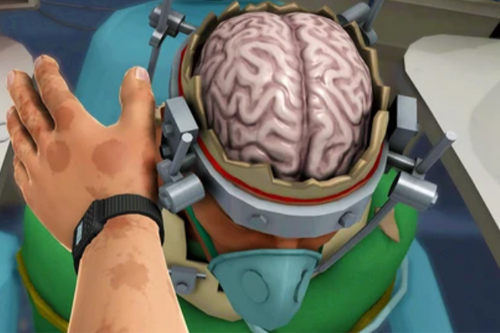
Brain Specialist
A brain specialist, often referred to as a neurologist or neurosurgeon, is a doctor who focuses on diagnosing or treating disorders related to the brain. There are two main types of brain specialists:
- Neurologist (Neurophysician): Specializes in diagnosing and treating brain and nervous system disorders using non-surgical methods.
- Neurosurgeon: A surgeon who treats brain conditions that require surgical intervention.
Neurologist (Brain Specialist - Non-Surgical)
Neurologists treat brain disorders through medications, lifestyle modifications, and therapies. Here are some common conditions are they manage:
Conditions Treated by Neurologists:
- Stroke: Disruption of blood flow to the brain, causing paralysis, speech difficulties, and memory problems.
- Migraines and Chronic Headaches: Persistent headaches, including tension headaches and cluster headaches.
- Epilepsy: A seizure disorders that involve sudden, abnormal electrical activity in the brain.
- Alzheimer’s Disease or Dementia: Conditions that lead to progressive memory loss, confusion, or impaired thinking.
- Parkinson’s Disease: A neurodegenerative disorder that causes tremors, stiffness, or difficulty with movement.
- Multiple Sclerosis (MS): An autoimmune condition that attacks the brain and spinal cord, causing weakness and coordination problems.
- Brain Infections: Such as meningitis and encephalitis (inflammation of the brain).
- Brain Tumors: Non-surgical treatment of brain tumors, such as coordinating chemotherapy or radiation therapy.
- Sleep Disorders: Neurological sleep issues like narcolepsy and insomnia.
- Movement Disorders: Conditions like Huntington’s disease, dystonia, and essential tremor.
Diagnostic Tools Used by Neurologists:
- MRI and CT Scans: Used to create detailed images of the brain.
- EEG (Electroencephalography): Monitors brain activity to detect abnormalities like seizures.
- Lumbar Puncture (Spinal Tap): A test that involves collecting cerebrospinal fluid to diagnose conditions like infections or multiple sclerosis.
- Blood Tests: To look for signs of infections, autoimmune conditions, or metabolic imbalances.
Neurosurgeon (Brain Specialist - Surgical)
Neurosurgeons are brain specialists who treat disorders that require surgical intervention. They operate on the brain, spinal cord, and nervous system.
Conditions Treated by Neurosurgeons:
- Brain Tumors: Both benign and malignant tumors that require surgical removal.
- Traumatic Brain Injury (TBI): Surgery to relieve pressure or repair damage caused by head trauma.
- Aneurysms: Swollen blood vessels in the brain that are at risk of rupturing and causing bleeding.
- Hydrocephalus: A condition where excess fluid builds up in the brain, often treated with shunt surgery to drain the fluid.
- Epilepsy: Some cases require surgery to remove or disconnect the brain regions causing seizures.
- Cerebral Hemorrhage: Surgery to remove blood clots or relieve pressure from bleeding in the brain.
- Spinal Cord Injuries and Disorders: Treatment of herniated discs, spinal tumors, or injuries that affect the brain’s connection to the body.
Neurosurgical Procedures:
- Craniotomy: Surgery where part of the skull is removed to access the brain for a tumor removal and aneurysm repair.
- Endoscopic Brain Surgery: A minimally invasive approach using a camera and small tools to access areas of the brain.
- Deep Brain Stimulation (DBS): A procedure where electrodes are placed in specific parts of the brain to treat conditions like Parkinson’s disease.
- Stereotactic Surgery: A highly precise technique used to target specific areas of the brain, often for treating tumors or epilepsy.
Neurologist (Non-Surgical Brain Specialist)
A neurologist is a doctor who treats conditions of the brain, spinal cord, nerves, and muscles using non-surgical approaches like medications, therapies, and lifestyle changes.
Conditions Treated by Neurologists:
- Migraines or Chronic Headaches: Neurologists treat migraines, tension headaches, or cluster headaches.
- Stroke: They manage stroke recovery and rehabilitation, helping patients regain function and prevent future strokes.
- Epilepsy: Seizure disorders are treated with medications to the control seizures.
- Dementia and Alzheimer’s Disease: Neurologists diagnose and manage progressive memory loss and cognitive decline.
- Parkinson’s Disease: A neurodegenerative disorder that causes tremors, muscle rigidity, and slowed movements.
- Multiple Sclerosis (MS): An autoimmune condition that affects the brain and spinal cord, leading to weakness or coordination problems.
- Sleep Disorders: Conditions like a narcolepsy, insomnia, or sleep apnea.
- Brain Infections: Such as encephalitis or meningitis.
- Movement Disorders: Including Huntington’s disease, essential tremor, and dystonia.
- Peripheral Neuropathies: Neuropathies caused by diabetes or other diseases, leading to numbness or pain.
Diagnostic Tools Used by Neurologists:
- MRI (Magnetic Resonance Imaging): Provides detailed images of the brain to detect conditions like tumors, strokes, and multiple sclerosis.
- CT Scans: Used for detecting brain injuries, bleeding, and tumors.
- EEG (Electroencephalography): Measures electrical activity in the brain, useful in diagnosing epilepsy.
- EMG (Electromyography): Tests the electrical activity of muscles and nerves, often used to detect neuropathies or myopathies.
- Nerve Conduction Studies (NCS): Measures how well electrical signals travel through peripheral nerves.
Training and Education of Brain Specialists:
Both neurologists and neurosurgeons undergo extensive training:
- Medical School: Both complete a 4-year medical degree (MD or equivalent).
- Residency:
- Neurologists: Complete a 3-4 year residency in neurology.
- Neurosurgeons: Complete a 6-8 year neurosurgical residency.
- Fellowships (optional): Both may undergo additional specialized training in areas like neuro-oncology (brain tumors), stroke, epilepsy, or pediatric neurology.
At our Neurosys Multispeciality Center, we perform several key procedures including Craniotomy, which is primarily for the excision of brain tumors; V-P Shunt Surgery for treating hydrocephalus; surgeries for epilepsy; and operations targeting brain stem glioma. Beyond these, we offer a range of other neurosurgical services. If you have any questions that are not answere, please contact us through our Contact Us or Book your Appointment.
